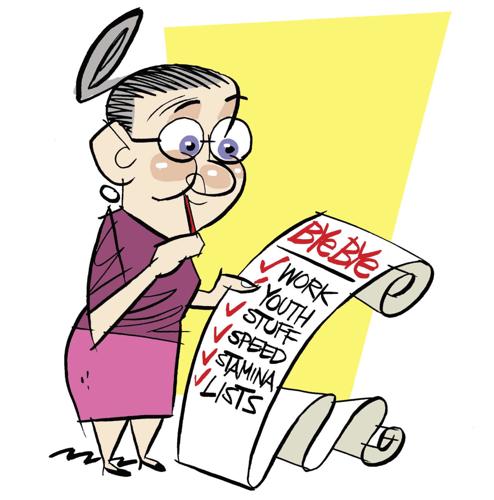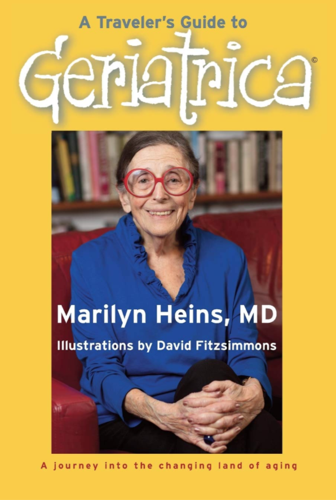Editor’s note: Longtime Arizona Daily Star columnist Marilyn Heins has released her latest book, “A Traveler’s Guide to Geriatrica: A Journey Into the Changing Land of Aging.”
Because of the COVID-19 pandemic, Heins will take to Zoom for virtual book events and is sharing excerpts of her work with the Star. This is the first installment.
You can find the book on Amazon.com, Barnes and Noble and Mostly Books.
Heins’ first Zoom book event will be Wednesday, March 3, at 10 a.m. To RSVP and to receive a link to the free online event, email HaciendaCanyonContact@Watermarkcommunities.com. She will speak about “A Traveler’s Guide Geriatrica” and answer questions.
I accepted the fact that I was aging. But it was not until my 80s that I realized I was getting old. My strength, speed and stamina continued to decrease. Everything was slowing down.
I have had to make some baby step changes. The morning walk diminished from 4 miles to 2. Hiking on uneven paths was over. I stopped cooking big festive meals for holidays. A friend said she could still cook up a storm but always had to spend the next two days in bed.
I made a vow that I would never, ever step on a ladder or a step stool again. Safety first. I was alone one night at about 10 p.m. when my smoke detector started screaming at me. I tried to reach the damn thing but even on tiptoes, my fingertips were an arms length away from it. Fortunately, the lights were still on in a neighbor’s house. He did not even need a step stool. What seemed like 10 seconds later, the screaming stopped and a new battery was installed. I love my neighbors.
I must confess that aging astonishes me. I never imagined that there would be so many new things to learn in my senior years. I must learn how to deal with a rapidly changing world, loss of loved ones, and my aging body. I struggle to accept my diminishing energy, speed and stamina. The rhythm of my life has changed because everything takes longer to do.
Longevity is a special blessing for those with good enough health and the means to live independently. We oldies know the math and understand that most of our lifetimes have already been lived. But, as a wise woman told me after my husband’s death, “There is a new chapter in your life yet to be written.” This is a good perspective from which to view what is ahead.
Adjusting to aging means adjusting to change, a no-brainer. But how? After much soul searching I have come to believe the process starts with saying “goodbye!” as cheerfully as possible to what was, and saying “hello!” to what will come.
This is a lot easier said than done. My mother, who died at age 99, lived alone in a house that had become too much for her, surrounded by a garden she could no longer walk in, let alone care for, and that sad kind of loneliness that results from outliving practically everybody. She refused to move. “Mom, how about an apartment near where one of us lives? A senior facility?” Her answer never varied. “I will not leave my house, I don’t want to change a thing in my house, I don’t even want to talk about it.”
Why this strong resistance to change as we age? Is it an exaggeration of how some of us were always reluctant to change? Is it a phenomenon of aging? Are we unwilling to make changes because we like our old surroundings so well? Do we fear the unfamiliar? Is it that we don’t have the energy to change?
Probably all of the above. But I suspect reluctance to change may also be related to the fact we are so acquisitive. Our culture teaches us from early childhood to acquire and value our acquisitions. The message: Get a college education, an advanced degree, a spouse, children, a house, a bigger house, furnishings, and other worldly goods, cars, flat abs and hard biceps at the gym, souvenirs from our travels. Acquire! Acquire more!
But nobody teaches us to say goodbye. Grief counselors help us deal with enforced goodbyes — a death, a debilitating illness. But what about learning how to voluntarily say goodbye to an old way of life, to possessions that are becoming too much for us, to our old methods of doing things and thinking about the world?







